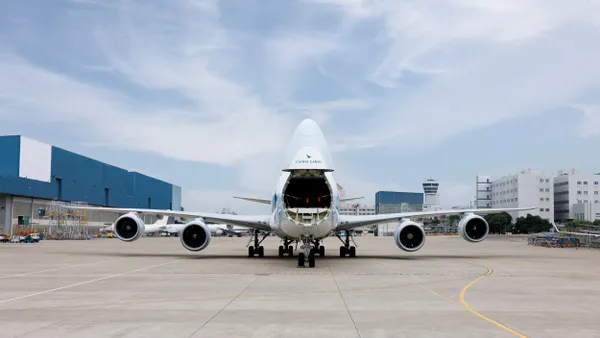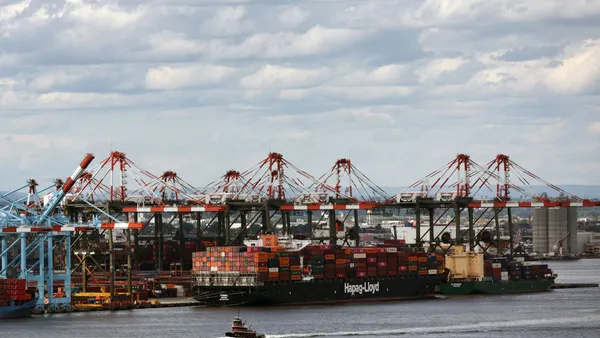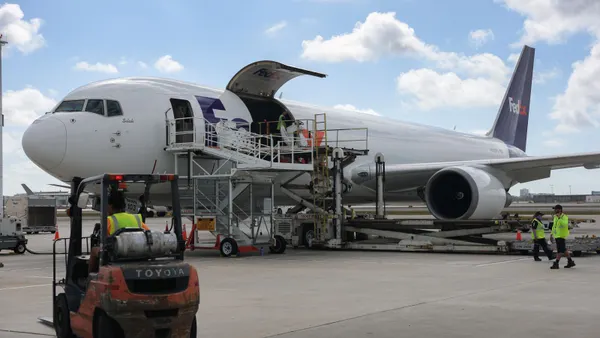Dive Brief:
- Ongoing strength in e-commerce demand from China to North America pushed May global air cargo volumes up 12% year over year, according to a June 5 report from Xeneta.
- However, apprehension among shippers is growing ahead of a U.S. crackdown on e-commerce shipments out of China, as rising costs and longer transit times could impact consumer demand, according to Xeneta.
- “If fewer freighters are required to carry e-commerce, they will enter the general air freight market (again) and produce a noticeable supply impact, putting downward pressure on rates. This possibility cannot go unnoticed,” Xeneta Chief Airfreight Officer Niall van de Wouw said.
Dive Insight:
Regardless of last year’s low growth forecasts and a potential shift in consumer demand, expectations continue to rise among shippers ahead of peak season and several months of consecutive growth. In addition, industry optimism is being fueled by e-commerce coming out of China, which has had a dramatic impact on the air cargo market since 2023.
“When we take a mid-term view of the market, with these kinds of numbers, we might be on track for double-digit growth for the year. It is now a possible scenario,” van de Wouw said.
Air cargo volumes are also being supported by port congestion and the Red Sea conflict, which has pushed ocean container shipping spot rates from the Far East to the U.S. West Coast and North Europe, Xeneta reported.
In May, the global air cargo spot rate stood at $2.58 per kilogram, up 9% year over year and 5% month over month, Xeneta reported.
Southeast Asia and China to North America experienced rate increases last month, up 65% and 43% YoY to $4.64 per kilogram and $4.88 per kilogram, respectively. Meanwhile, the Europe to North America spot rate fell 21% YoY to $1.77 per kilogram.
Although global challenges have reduced the cost gap for shippers and forwarders considering a modal shift from ocean to air, it is unlikely that there will be a major change, per the report.
“Compared to the onset of the Red Sea crisis or the Covid pandemic, cost spikes this time around are most likely triggered by shippers frontloading imports ahead of the ocean peak season to eliminate impacts from increased supply chain disruptions,” according to Xeneta.















